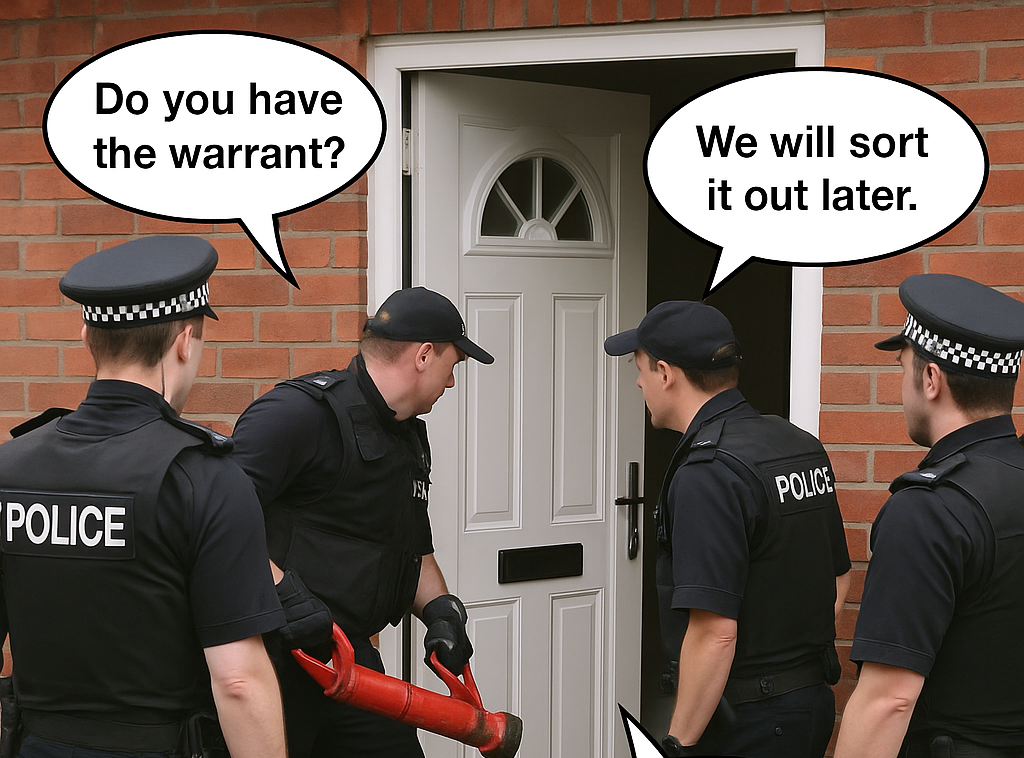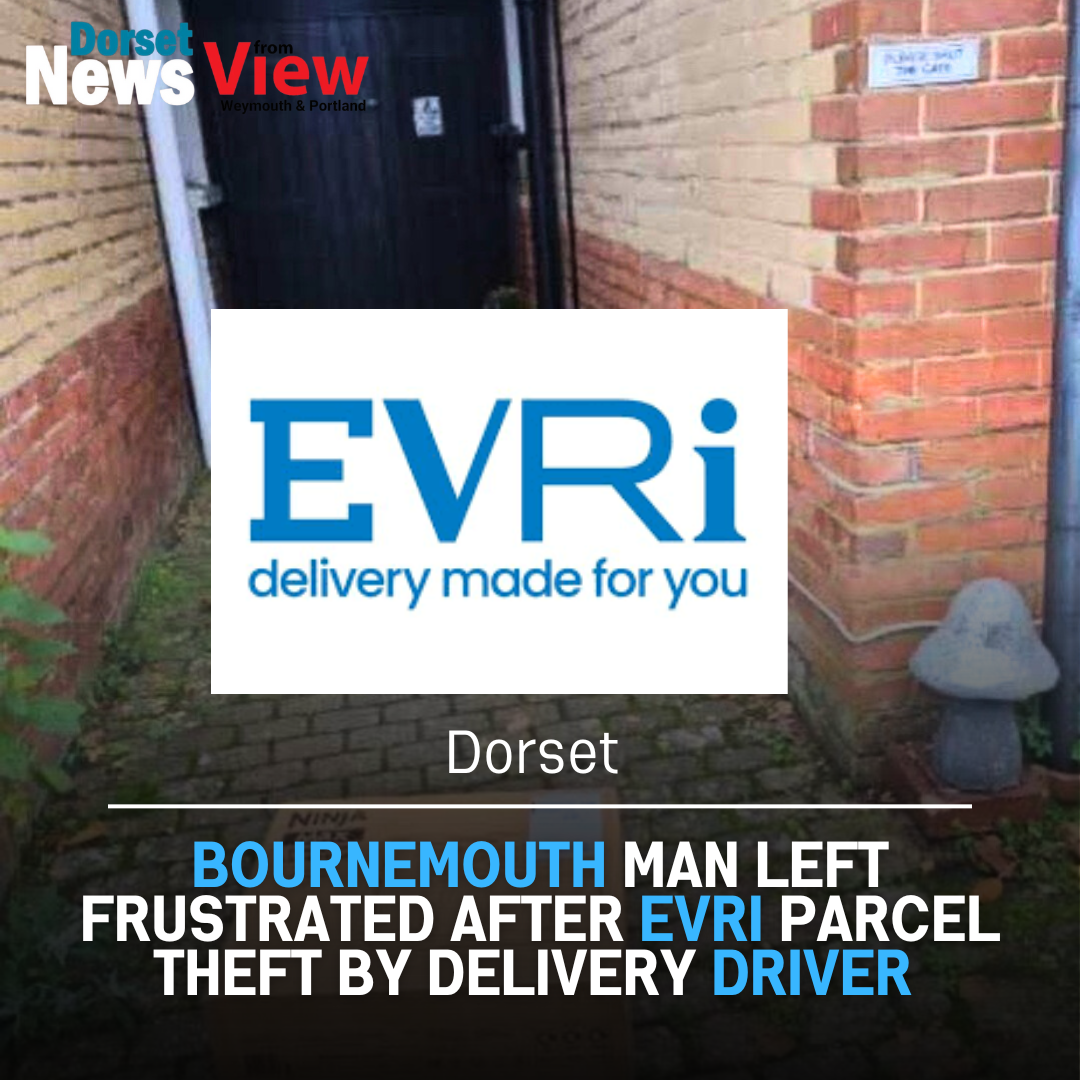Concerns have been raised over a potentially unlawful search carried out by Dorset Police on June 18, 2025, in Wyke, with critics calling it a troubling example of overreach, procedural failure, and questionable policing practices.
At the centre of the issue is a search of a private property by Dorset Police that was captured on CCTV around 2:00 PM. The search was allegedly conducted under the powers granted by Section 18(1) of the Police and Criminal Evidence Act (PACE) — a provision that permits officers to enter and search premises occupied or controlled by a person under arrest for an indictable offence, provided the officer reasonably believes there is evidence relevant to that offence.
However, documentation obtained by the accused shows that the Section 18 search authority was not signed by the requisite inspector until 19:34 — more than five hours after the search had already begun.

Arrest Timing Sparks Further Legal Concerns
When questioned, the officer in charge of the search allegedly claimed the property was entered under the powers granted by Section 25 of PACE, which allows police to search a person and premises following an arrest for an indictable offence.
Yet this explanation presents a critical contradiction: the suspect was not formally arrested until approximately 6:00 PM — four hours after the search had commenced. Notably, it was items discovered during this initial search that allegedly led to the arrest, thereby undermining the claim that it was conducted post-arrest.
Legal Items Seized, But No Record Provided
Among the items seized during the search were an air rifle and laser guns — both legal to own under UK law, provided they remain on private property and are not misused. There is no evidence to suggest these items were ever taken into public spaces or used unlawfully.
A mobile phone was also seized, reportedly at the police station, for examination in connection with a domestic abuse allegation. However, that allegation was claimed untrue by the alleged victim, who reportedly confirmed that the claims were entirely false. Despite the lack of supporting evidence, the phone was still seized to be examined (which could be waiting 3 months + to be processed).
Perhaps most troublingly, no formal evidence seizure log has ever been provided to the individual whose property was searched. Without this documentation — a legal requirement — there is no way to verify what items were taken, raising serious concerns about transparency, evidence handling, and potential misuse of property.
No Support from Dorset’s Crime Commissioner
The person at the centre of the incident contacted Dorset Police and Crime Commissioner David Sedgwick in search of assistance. However, they received only a generic email reply stating that the commissioner’s office does not get involved in individual cases — a stance that some feel shirks accountability, especially in cases where procedural misconduct is alleged.
A formal complaint was submitted to Dorset Police’s Professional Standards Department shortly after the incident. Yet, as of mid-July, the complainant reports no acknowledgment or communication regarding any investigation or resolution.
Broader Concerns Over Police Conduct
This case has fuelled growing public concern about police accountability and adherence to lawful procedure in Dorset. Legal experts and civil liberties advocates warn that conducting a search without lawful authority — and failing to document or disclose what was seized — could have serious legal implications for the officers involved and calls into question the integrity of the entire investigation.
As pressure mounts, Dorset Police has so far declined to comment publicly on the matter. The community awaits not only answers but a commitment to transparency and lawful policing.
*If you have concerns about policing practices or believe your rights have been violated, organisations such as the Independent Office for Police Conduct (IOPC) or Liberty offer support and guidance
Discover more from Dorset News
Subscribe to get the latest posts sent to your email.
















Leave a Reply